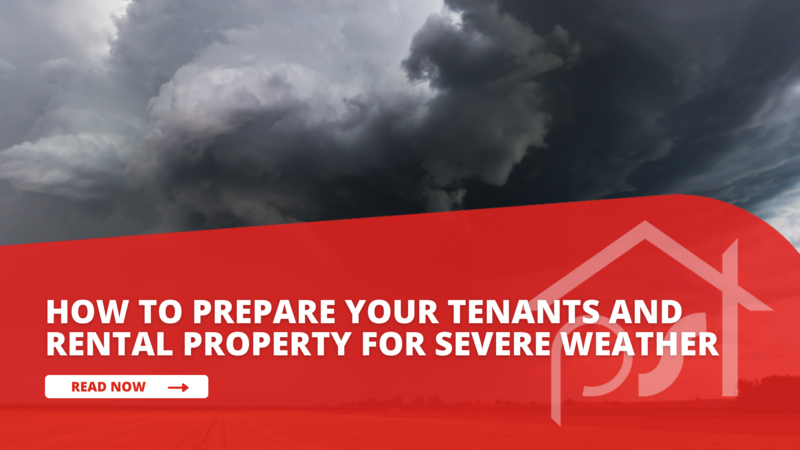
How-To Prepare Your Tenants and Rental Property for Severe Weather
Just when you think the worst of the winter weather has passed, Mother Nature likes to throw a few curveballs - often in the form of wild storms. Do you know how to prepare your rental property and your tenants for severe weather?
Even if there is no storm on the horizon, here’s a rundown on the steps you should take to prepare for a worst-case scenario in the future.
Undertake preventative maintenance
The best time to prepare your rental property for severe weather is well before a weather watch or warning is issued - when there isn’t a cloud in the sky! In an ideal world, you will have already ticked off most, if not all, of your winter maintenance tasks by now. If not, and severe weather is looming, here are a couple of urgent things to address:
- Check and clear gutters, drains and downpipes to ensure they are free-flowing. This includes making sure pot plants aren’t covering any drains.
- Trim overhanging or dead tree branches. If you notice any dead trees and have time to remove them before severe weather hits, do so.
Brush up on your insurance policy
As a landlord, you should have a good understanding of what is covered in your insurance policy. However, it’s always a good idea to double-check the finer details to make sure you are covered for things such as flooding or potential structural damage caused by severe weather. It’s also a good idea to get set on what you would need to make an insurance claim and if there are any terms and conditions that you need to adhere to in order to be eligible for cover.
If your insurance doesn’t cover your tenants' personal belongings, it’s a good idea to send them a friendly reminder every so often. Encourage them to either take up their own insurance policy or review the terms of their current policy to make sure their personal belongings are covered if damaged by the likes of flooding.
Touch base with your tenants (don’t be a stranger)
When a weather watch or warning is issued don’t be a stranger to your tenants. Get in touch with them using whatever channel of communication you prefer. It could be an email, text, or phone call. Empathise with them and ask them to reach out if they have any concerns about the property in relation to the imminent storm. Remind them to call emergency services in the worst-case scenario and advise them on what to do if any other issues arise during the severe weather. For example, if the roof starts to leak, advise tenants to contain the water until it has stopped raining. Let them know that due to health and safety requirements, tradespeople won’t be able to address any issues until the storm has passed and it’s safe to do so.
Batten down the hatches
Severe weather is often accompanied by strong wind which can cause extensive damage to your property - particularly if loose items aren’t secured. When a storm is on the horizon, encourage tenants to make sure loose items are stored indoors, away from the wind, and that any large items such as trampolines or outdoor tables are tied or weighed down. The likes of sheds, shade sails, and pergolas should also be securely anchored and retractable awnings should be retracted.
After the storm
After severe weather has passed, check in with your tenants to find out if any damage has occurred. As a landlord, you are responsible for maintaining your rental property in a reasonable condition, which includes paying for repairs for damages caused by natural disasters.
If you work with a property manager, they will take care of organising all maintenance and repairs on your behalf. This includes preventative maintenance. They will also take care of touching base with tenants and addressing their concerns before, during, and after severe weather events. If you’re in the market for a property manager or if you would like some more information about what a property manager can do for you, get in touch with your local property management experts.
_____
DISCLAIMER: The above advice is written by Propertyscouts New Zealand (2020) Limited and is intended as a broad guide for educational purposes only. The advice should not be regarded as legal, financial or real estate advice. In all instances, you should make your own inquiries and seek independent professional advice tailored to your specific circumstances before making any legal, financial or real estate decisions.
_____
